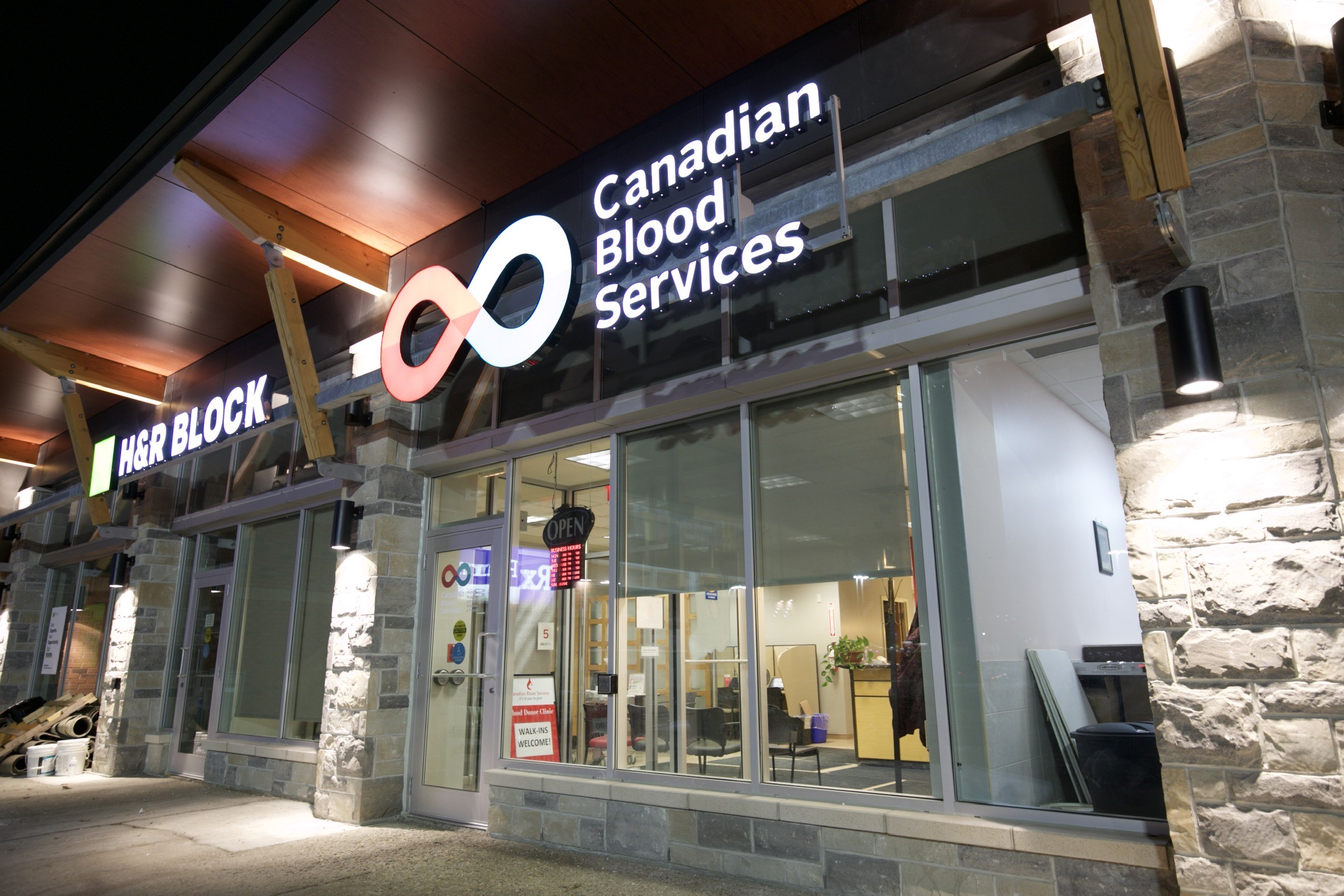
Blood donations on campus have undergone a drastic decline since renovations began at the SLC in 2017.
Gina Leyva, events coordinator, Canadian Blood Services, says that the targets set by local hospitals, which estimate the number of donations needed, have not been met since 2017.
“We typically would collect 100 per cent or more [of our target] before the (SLC) renovations started, and since renovations started, the average of our collection is only 84 per cent,” Leyva explained.
This year, the target was set for 360 units of blood at UW, but clinics have only managed to collect 300.
Leyva said that the drop is especially harmful because UW is generally a steady donation source for blood.
“Typically, we don’t have any issues, as UW is one of our highest collecting mobile blood donor clinics. Everyone is very giving, all of the students and staff at UW. So we never really had an issue with reaching our target,” she said. “Imagine, overall, we were steadily collecting 100 per cent, and then a 16 per cent drop, which for us, as a team, it’s shocking because we never ever had a problem reaching our goal at UW.”
Leyva mentioned that in the past, blood donations from the UW community have been outstanding.
“We have more blood donors at UW than maybe any university in Ontario and that’s why we have three days of blood donation clinics when we come,” she said. “Just to give you an idea, I know that Laurier is a much smaller school, but we only go there twice a year, for one day each time, and we come to UW five times a year for three days each time. So it’s huge, there’s no way we could ever collect as much blood.”
Leyva believes SLC renovations are preventing students from being aware that the blood drives are taking place.
“I believe that part of the reason is that students don’t realize that we’re still having the clinics there, maybe they thought that renovations would have disrupted the clinics, but they haven’t, so I just want to remind students that they are still there, and we absolutely still need their help.”
Renovations to the SLC over the past two years have consisted of the temporary closure of Brubakers, the SLC food court, and blocked access to different parts of the building as well as entryways and exits. Because of this, many students avoid passing through and near the SLC.
Seneca Velling, VP of Operations and Finance for WUSA, confirms that student foot traffic in the SLC has experienced a significant drop following the start of construction.
“We‘ve seen a marked decline in student foot traffic in here over the last few years as a result of the construction, particularly relative to 2014 levels,” he said.
Despite their best efforts, Leyva feels that with donation levels so low, Canadian Blood Services is running out of options.
“[We’re] just trying to essentially do whatever we can to draw attention to the clinics, and even though we’re working twice as hard, it’s just not enough,” she said. “We just had three clinics at the end of November, and on none of the three days were we able to reach our target. We sat down, and said what can we do; we’re really struggling.”
Velling said that WUSA was unaware that blood donations have undergone a decline, but that WUSA was trying to minimize construction impacts as much as possible and would readily lend a helping hand.
“We’re happy for them to reach out to us and see if we can plan something together because we [generate] awareness for various major student events,” he said.
“Blood drives make an immense difference for the community and help millions of Canadians a year, we recognize that and are part of that community engagement. We wouldn’t want something like that to depreciate in value just because we’re in a construction site.”
WUSA said it has tried to decrease the impact of the renovations on students as much as possible throughout the construction period.
“We’ve actually planned the construction schedule around student events and academic events in general so, for example, for convocation we shut down construction so that you’re not hearing clanking and hammers,” Velling explained.
In addition, Velling believes student traffic levels will increase on their own once renovations are complete.
Although student traffic has taken a negative plunge, Velling thinks the expansion will be well worth it for students.
“In the short term, we’ll see the same stagnant level, and in the long term, we’ll see substantial improvement in student foot traffic and use of the space because we’re building a 63,000 square foot addition that’s entirely dedicated to students,” he said. “It’s a minor inconvenience for a substantial long-term gain. With 63,000 square feet of additional space, we’re going to see tons of opportunities for student study rooms, silent studies, group study spaces, academic and recreational spaces, conference centres, and an expanded food court that will accommodate way more people.”
Leyva wants students to know that despite the disruptions caused by renovations, nothing concerning the blood drives has changed.
“I just want people to know it’s not their fault that this has happened, we just really want to remind students that we’re still there, we’re still in the same place, we’re still in the multipurpose room, nothing at all has changed as far as the clinic goes.”
According to Leyva, people should consider donating because a small contribution of your time can save lives.
“People should think about donating blood because it’s one hour of your time but when you donate blood you are the direct connection to saving someone’s life. You donate blood, one hour, and you save someone’s life. There’s nothing else you can really do that has such a great impact.
Students are always looking for ways to get involved, especially at UW, students are exceptionally involved, and this is the best way to help someone.”
Blood donation clinics on campus run from 10 a.m. to 3 p.m. in the multipurpose room and are typically held every other month.
The next clinic that will be taking place on campus will be held on Jan. 29, 30, and 31. You can call 1-888-2-DONATE to book an appointment in the SLC during this time.





























